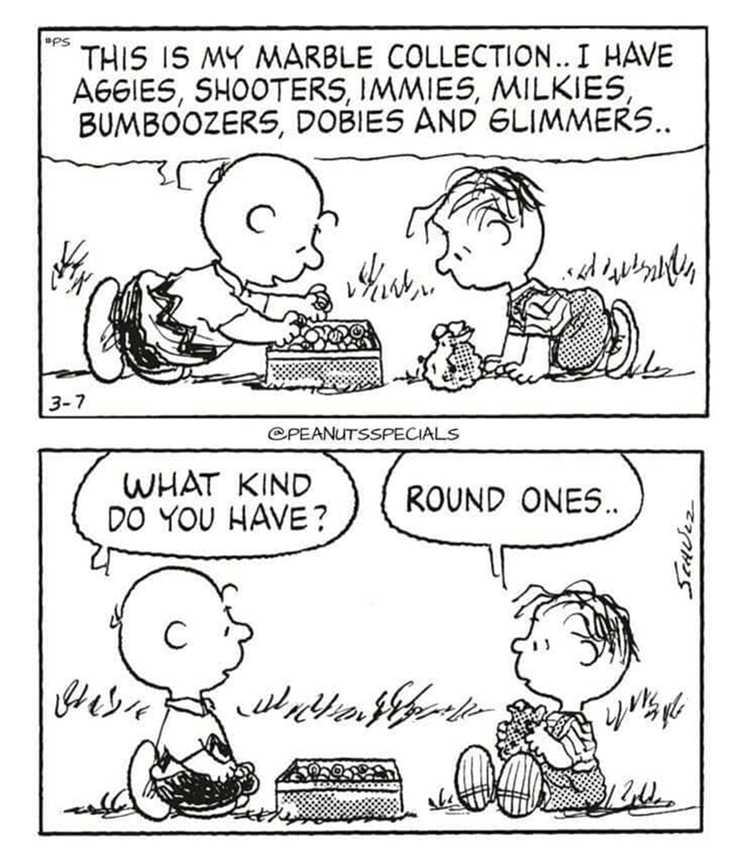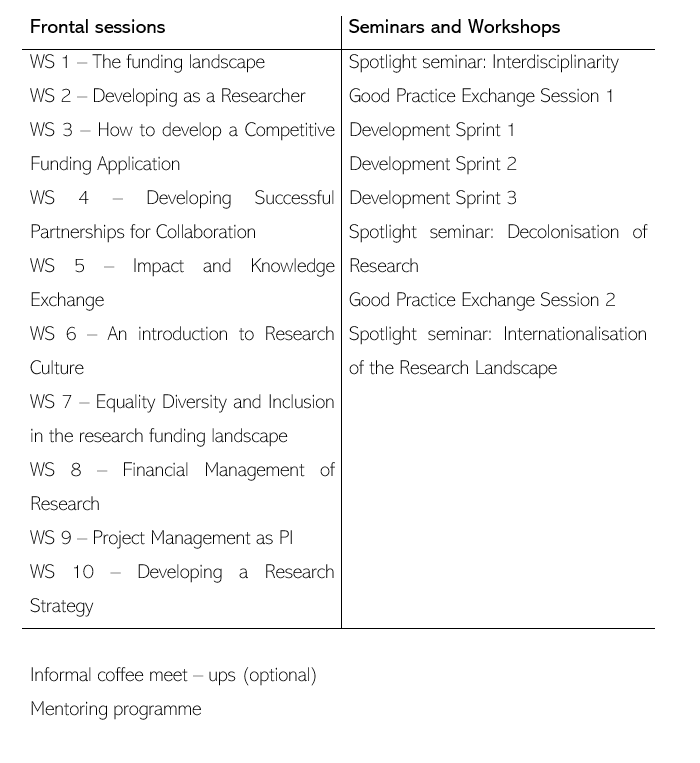Are you eager to become a research practitioner or secure funding for a project you're passionate about, but unsure of where to begin? This blog article will introduce you to a training program specifically designed to equip you with the skills and knowledge needed to successfully navigate the research landscape. I hope it will help you take the first step toward turning your research aspirations into reality!

Peanuts Lucy and Schroeder first appearance: 7 March, 1995
How often have you found yourself holding a bag full of valuable conservation research questions but struggling to explain them to other professional audiences? Is this due to unfamiliarity with the research landscape, difficulty engaging with the research vocabulary, or a lack of confidence?
For me, the answer to these questions has often been yes, for all these reasons! That's why this image resonated with me so profoundly.
While navigating the overwhelming tide of practice research engagement, I discovered a course that has acted like a life jacket, providing much-needed support and relief. If you, like me, experience the “Linus syndrome,” I hope this article, which introduces a training programme for library professionals engaging with research, inspires you to take action.
As conservators, we encounter the ongoing challenge of enhancing the accessibility of written heritage for consultation, digitisation, and display. These responsibilities often lead to complex ethical dilemmas, as improving usability can conflict with the imperative to preserve the archaeological integrity of written artifacts. Striking the right balance between preservation and accessibility is no easy task, particularly when the materiality of an artifact is frequently overlooked in research.
The study of books as material objects has the potential to illuminate critical aspects of textual transmission and cultural reception. Yet, systematic research into book materiality and its significance remains remarkably sparse. Each act of conservation, however, offers a unique opportunity to investigate and comprehend the materiality of these artifacts, shedding light on their creation and historical context. By embracing this field, we can unlock invaluable insights into cultural heritage, ultimately enhancing both our understanding and the preservation of our written heritage. For years, I have maintained that this rich vein of research is largely underexplored and could greatly benefit from deeper investigation; however, I have found it challenging to articulate this vision to audiences outside the conservation community.
For this reason, when I learned about the Research Catalyst Cohort Programme, I realised it would be the perfect opportunity for me to push my research interests beyond my limits.
The Research Catalyst Cohort Programme
The program was developed and conducted by Research Libraries UK, the Arts and Humanities Council, and the Association of Research Managers and Administrators. It ran for one year, from April 2022 to March 2023, and targeted a small group of academic and research library professionals. The primary aim was to assist participants in creating and submitting highly competitive funding applications to research funders. Additionally, the program was designed to provide career development opportunities that would empower participants to enhance their professional practices and advocate for the value and benefits of arts and humanities research in communities beyond academia.
The course consisted of ten three-hour sessions held monthly throughout the year, covering various aspects of the funding application process. Topics included understanding the research funding landscape, developing research questions, fostering partnerships and collaborations, assessing research impact, promoting equity, diversity, and inclusion (EDI), and managing finances. Through seminars, workshops, networking opportunities, and a mentoring programme, the course encouraged participants to develop personal research questions and research plans for funding applications.

Research Catalyst Cohort Programme Structure
The program proved to be exceptional not only for the comprehensive skill development it offered, but also as a vibrant networking platform for a diverse group of like-minded library professionals dedicated to highlighting the significance of professional practice research. On a personal level, this program was truly transformative, as it empowered me to propose a groundbreaking research project to my institution, leading to a successful funded fellowship.
The Research Catalyst Cohort Programme equipped me to articulate my research question in a way that resonates with audiences beyond my immediate professional circle. I discovered the power of interdisciplinarity and learned to effectively advocate for its advantages. I was genuinely surprised by the enthusiastic interest and engagement surrounding my research topic from professionals outside conservation: the shift in the attitudes towards the materiality of objects and the exploration of production systems was palpable, as well as there a heightened curiosity about how various research methodologies can enrich our understanding of cultural phenomena.
Looking Forward: Joining the Next Research Catalyst Cohort
The third edition of the Programme is currently underway for the years 2025-26. I had the privilege of using this platform to share my experience in the hopes that it may inspire other colleagues interested in research and professional practice. Information about the application process and the schedule for the programme can be found on the Research Catalyst Cohort 2025-26 - Research Libraries UK.
The Research Catalyst Cohort Program can serve as an excellent starting point for professionals who are interested in research but may not be familiar with the research landscape. Some professional roles are often perceived as supportive rather than as leaders within this field. However, professional staff, such as conservators, have the opportunity to utilise research methods to address critical questions arising from their work. Overcoming this internal bias can be a challenging process, but it is also incredibly rewarding. This has been one of the most significant lessons I've learned from the programme.
